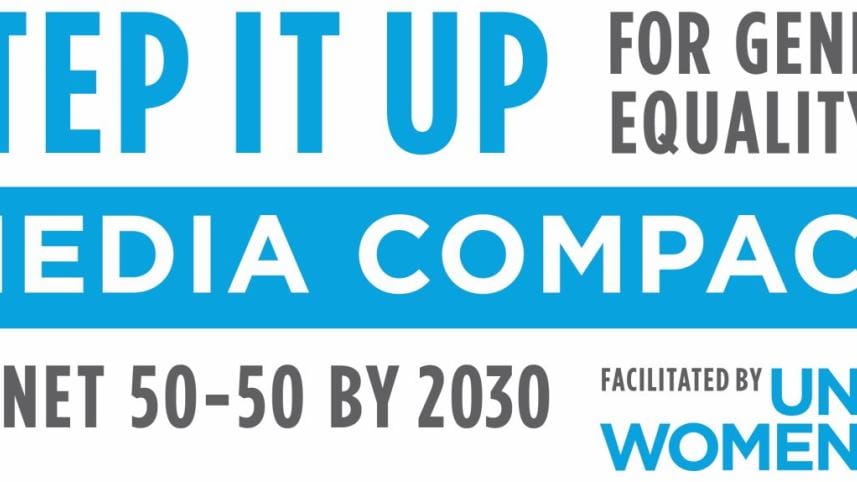Improving women’s safety in Mexico City

In Mexico City, nine in ten women have experienced violence in public transport. Through the "Mexico City Safe City and Safe Public Spaces for women and girls" programme, UN Women is promoting women's safety, including through women-only buses.
"There was a man standing behind me and the more I tried to move, the more he pushed against me. Another passenger intervened, but he didn't pay any attention. I tried to get off, but he wouldn't allow me to move. I will never get on this carriage again, even if I am running late," says 25-year-old Elizabeth Rodriguez, a Mexico City resident who uses public transport every day to go to work.
In Mexico City, women undertake approximately 10 million journeys per day of which 73.9 per cent are on public transport. Recent research shows that nine in ten women have experienced violence in public transport. Sexual harassment and other forms of gender-based violence are widespread in public spaces of the city. "I have been touched, they have taken photos of me, they have said so many things," says Raquel Garcia, aged 17, who participated in a focus group discussion led by UN Women.
A scoping study conducted in Mexico City to inform the development of the Mexico City Safe City and Safe Public Spaces Programme revealed a heightened sense of insecurity among women accessing public spaces and transport. "The truth is that every time I leave my house, I am scared," shared Victoria Juárez, 34, who also participated in the study.
To make public spaces safer for women and girls, UN Women is working with the Mexico City Council to develop and implement a joint programme, "Safe Cities and Safe Public Spaces for Women and Girls", from 2015 to 2017.
In collaboration with the Mexico City Women's Institute, UN Women is bringing together transport authorities, public servants, service providers, women and grassroots organizations to develop a comprehensive programme to prevent and respond to sexual violence against women and girls in public spaces, including a campaign that will be launched in early 2017.
The programme has also led to commitments by the Mayor of Mexico City to increase access to 'women only' buses, known as 'Atenea buses', with the creation of two new routes and to establish three new support centers for women and girls in the metro and metrobus systems. These centers help survivors to report incidents of sexual harassment and other forms of sexual violence, providing them with emotional and psychological support and assisting them in seeking justice. Meanwhile, Mexico City authorities have improved the lighting and surveillance at bus stops and in other public spaces. Additionally, a new mobile phone application called Vive Segura has been launched to facilitate the reporting of incidents of sexual violence and harassment in public spaces and to enable women to undertake safety audits—a process through which women can evaluate the safety of a neighbourhood or public space and provide feedback and recommendations.
Apart from Mexico City, Puebla in central Mexico and Torreón in the northern State of Coahuila, have recently launched their own Safe City programmes in collaboration with UN Women, allocating resources from their own budgets to ensure women's safety in public spaces and public transport.
"We want to transform our world through smart and sustainable cities— inclusive cities that place people at the heart of public administration, with the full participation of women and with a gender perspective," says UN Women Mexico Representative Ana Güezmes. "This is an innovative programme that enables local governments to respond to the specific needs of women and girls and to meet their obligations in the 2030 Agenda for Sustainable Development, in particular Sustainable Development Goal 5 to achieve gender equality and empower all women and girls and Goal 11, which calls for actions to make cities and human settlements inclusive, safe, resilient and sustainable."
The "Safe Cities and Safe Public Spaces for women and girls programme (2015- 2017)" in Mexico City funded by AECID (The Spanish Agency for International Cooperation and Development) and the local government, aims to ensure that women and girls are socially, economically and politically empowered in public spaces that are free of sexual harassment and other forms of sexual violence.
Note: Names of participants have been changed to respect confidentiality.
This story was replicated from the UN Women website. The Daily Star is an official partner of UN Women's Step It Up! Media Compact, an alliance of media organisations committed to playing an active role in advancing gender issues within the framework of the Sustainable Development Goals (SDGs).




 For all latest news, follow The Daily Star's Google News channel.
For all latest news, follow The Daily Star's Google News channel.
Comments